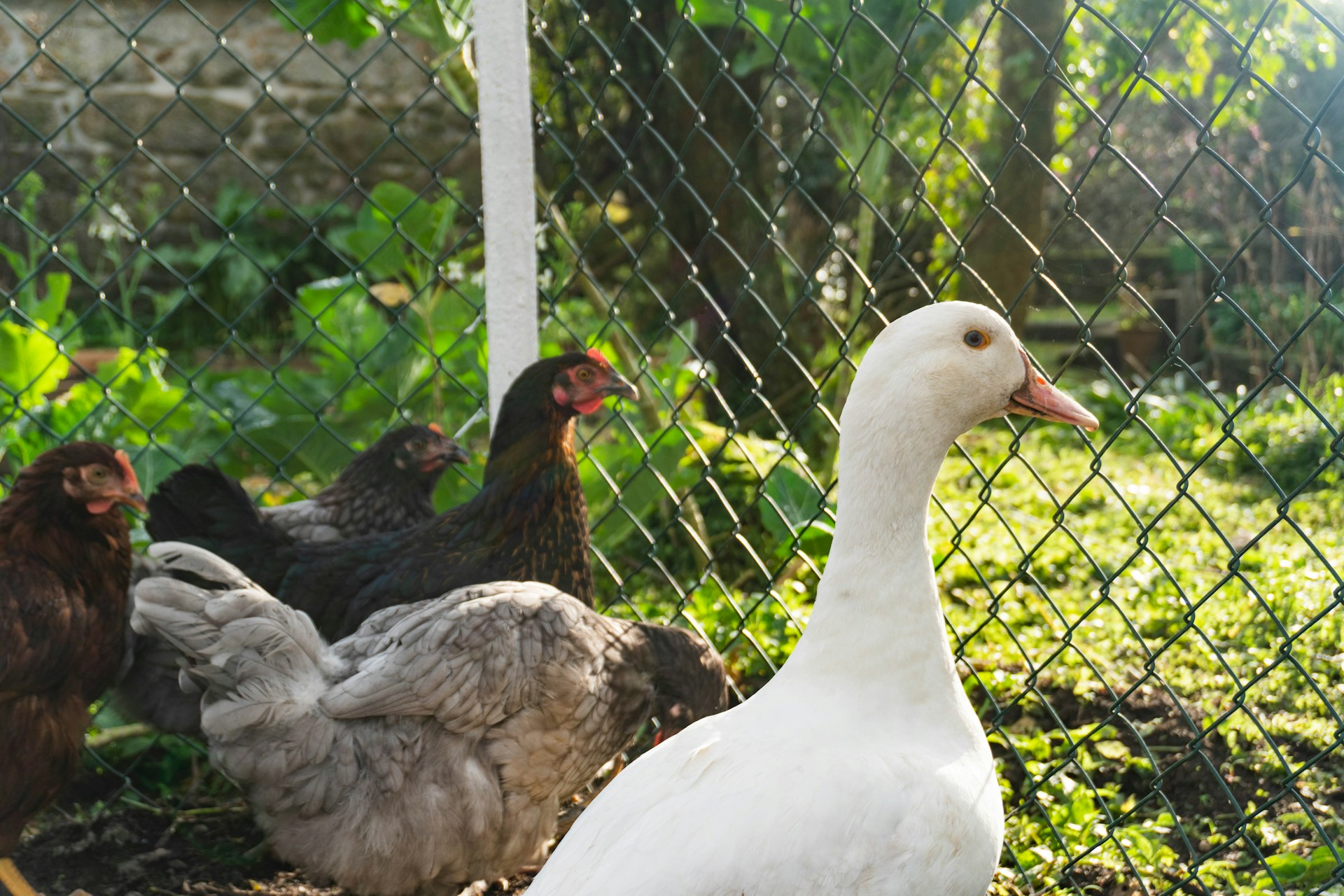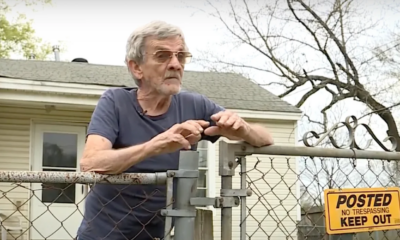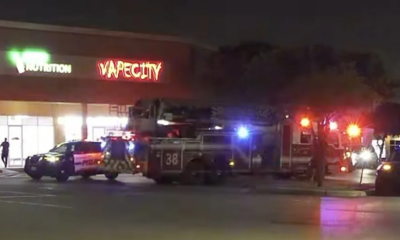Preparedness
Colorado Home Intruder Gets Deadly Surprise from Gun-Wielding Victim

An unnerving event unfolded in the early hours in Commerce City, Colorado, a tranquil suburban locale just twenty minutes northeast of Denver. A resident recounted to the police that he was brutally attacked by an unidentified intruder who had broken into his home after midnight on Sunday. Consequently, the resident was left with no choice but to defend himself using a firearm, ultimately shooting the intruder dead, as reported by KDVR-TV.
The incident happened around 2:45 a.m. on East 64th Avenue, with the resident detailing to the police how he was viciously assaulted by this unknown intruder.
Detective Sgt. Derek Aragon, while speaking to KDVR-TV, confirmed the severity of the resident’s injuries. “He was pretty beaten up — face, whole body. … He had obvious injuries,” Aragon revealed. The resident’s ordeal was far from over as, after the shooting, he had to dash down the street to seek assistance.
The police, upon arrival at the scene, found the body of the suspected male intruder inside the residence. KCNC-TV reported that the house was in a chaotic state, pointing towards what may have been a violent encounter.
Authorities are currently investigating the case under Colorado’s “Make My Day” law. This law sanctions the use of deadly force in certain scenarios where an intruder unlawfully enters and poses a physical threat to homeowners.
“As of right now, in the early stages, it’s looking that way, but we’re still trying to piece that together,” Aragon mentioned to KDVR on the applicability of the law in this case.
KDVR’s legal analyst, Christopher Decker, elaborated on the “Make My Day” law implications, stating that citizens are permitted to use deadly force against any individual who unlawfully breeches their residence and presents a physical threat.
“If it’s an open-and-shut case of an armed homeowner shooting an intruder, they’re probably not going to file charges against the homeowner, and you know, beware to all burglars,” Decker cautioned.
The identity of the deceased intruder is yet to be released by the Adams County Coroner, as per KDVR. Meanwhile, the police have urged any witnesses to come forward and provide information by reaching out to the Commerce City Police Department’s tip line.
Public sentiment appears to be in favor of the resident, as evident from comments on the police department’s Facebook post about the incident. One of the commenters said, “This is why it is so important to be armed and ready to protect yourselves and your families.” Another added, “Heck yeah!! For every action there is a reaction!! Gotta do what ya gotta do to protect [ourselves] and our home[s]!!”
One commenter succinctly stated, “Good! Now he won’t re-offend.” Another emphasized, “Make My Day law in full effect! FAFO,” highlighting the resident’s legal right to self-defense under the state’s law.
Watch a local news report about the incident below:
Let us know what you think, please share your thoughts in the comments below.

Preparedness
Chickens or Ducks Which Reigns Supreme on Your Homestead

When it comes to choosing the right poultry for your homestead, the decision often boils down to chickens or ducks. Both have their unique advantages and challenges, making the choice a personal one that depends on your specific needs and environment.
For those starting their journey into homesteading, both chickens and ducks offer a steady supply of eggs and meat. However, differences in egg production may influence your decision. Ducks generally outlay chickens, producing between 32 to 52 pounds of eggs annually, compared to chickens’ 22 to 34 pounds. The breed plays a significant role in these numbers, so research is crucial.
Ducks take a little longer to start laying eggs, beginning at 6-7 months, compared to chickens at 4-5 months. Nevertheless, ducks often have a longer productive lifespan. Duck eggs are not only larger, averaging 2.5 ounces compared to chicken eggs at 1.5 ounces, but they also boast higher fat, protein, cholesterol, and omega-3 levels.
Both birds are viable options for meat production. While chicken meat is more familiar to many, duck meat is a nutritious alternative enjoyed globally. The process of raising these birds for meat is similar, though some breeds are more suitable than others.
In terms of housing, chickens are more adaptable to confinement, making them a better choice for limited spaces. They require coops with roosting bars and nesting boxes. Ducks thrive in a free-range setting but still need a “duck house” for safety. Unlike chickens, ducks don’t need nesting boxes, as they create nests from available litter.
“Ducks tend to be messier than chickens,” which means more cleaning in their housing area. Regardless of your choice, sturdy fencing is crucial to protect them from predators. Ducks require less height in fencing since they aren’t strong fliers, but a roof is essential to guard against aerial threats.
Environmental conditions also play a role in your decision. While chickens need specific breeds to tolerate extreme climates, ducks are more adaptable to varying weather conditions. Ducks also manage well in wet environments, unlike chickens, which prefer drier settings.
Water is a significant consideration for ducks, as they need more than chickens. Ideally, a pond or a filled baby pool should be available for ducks to bathe and clear their nasal passages. “At a minimum, ducks need to be able to dunk their whole head into water on a daily basis.”
Dietary needs differ slightly between the two. Chickens require a controlled diet with measured feedings, whereas ducks, especially if free-range, forage for much of their food. They are excellent for natural pest control, consuming slugs, worms, and various insects.
Ducks generally exhibit stronger disease resistance and have fewer health problems, particularly in their youth. They are also quieter than chickens, which can be quite noisy, especially if roosters are present. Ducks only become loud when agitated, and male ducks, or drakes, emit a wheezing sound rather than a quack.
Temperament is another factor to consider. Ducks are typically friendlier and less aggressive than chickens, which are known to peck. Ducks are also easier to manage since they don’t fly or run as quickly.
Availability and cost can be deciding factors too. Chickens are widely accessible and affordable, whereas ducks might require ordering and are usually more expensive upfront. However, duck eggs can fetch a higher price if you plan to sell them.
Ultimately, the choice between chickens and ducks depends on your homestead’s specific needs and conditions. Weighing the pros and cons of each will help you make the best decision for your situation.
Let us know what you think, please share your thoughts in the comments below.
Preparedness
Master Urban Survival: Two Essential Preparedness Strategies

In the bustling environment of city life, emergencies can strike at any moment, often catching residents off guard. Whether it’s during your daily commute, while you’re at work, or even in the middle of the night, urban dwellers must be ready for anything. This is why it’s crucial to have multiple contingency plans.
“Have a Plan B, C, D and E,” to ensure you’re never left without options. This involves preparing emergency kits and planning several evacuation routes, both by car and on foot. When an emergency unfolds, having various strategies allows you to choose the best course of action under pressure.
Preparation doesn’t stop at planning; it extends to practice. If you anticipate needing to walk long distances, such as 30 miles out of the city with a heavy pack, physical readiness is key. Understanding the terrain firsthand is vital, as maps and apps may fail, particularly if cellular service is disrupted. In a true crisis, self-reliance on your experience and pre-established plans is paramount.
The second principle of urban preparedness involves embracing self-reliance. City life often provides easy access to modern conveniences, but these can vanish quickly in a crisis. “You won’t be able to rely on an Uber during a crisis,” and access to essentials like food, water, and power might be severely restricted.
Growing your own food in the city, contrary to popular belief, is entirely feasible. Vegetables can flourish in potted plants on rooftop gardens, and herbs like basil can thrive in sunny, southern-facing windows. Community gardens also offer urban garden plots for those willing to cultivate their own food supply. “Learning to grow your own food is an extremely valuable skill,” aiding not just in emergencies but also in potential resettlement scenarios.
Foraging is another valuable skill, often underestimated in urban settings. Despite misconceptions, cities are not entirely disconnected from nature. Local foraging groups can guide you on what is safe to pick and eat, allowing you to supplement your food supply without battling supermarket crowds.
Ultimately, the key to urban preparedness lies in continuous learning and self-reliance. In a crisis, relying on external help can be a lengthy wait, as thousands of others might be seeking the same assistance. By mastering these skills, you can navigate emergencies more confidently and independently.
In conclusion, embracing these two principles—having multiple plans and fostering self-reliance—will set you on the path to comprehensive urban preparedness. Avoid feeling overwhelmed by taking it step by step, ensuring that you and your loved ones are ready for whatever challenges city life might throw your way.
Let us know what you think, please share your thoughts in the comments below.
Preparedness
Nationwide Concealed Carry: A Game Changer for Gun Owners?

House Republicans are once again advocating for a nationwide policy that would allow concealed carry permits to be recognized across state lines. This initiative, known as the Constitutional Concealed Carry Reciprocity Act, aims to ensure that concealed carry permits are treated similarly to driver’s licenses, which are acknowledged by all states.
“There’s a lot of words there, but it’s a very common sense, simple piece of legislation,” explained Rep. Richard Hudson from North Carolina, the primary sponsor of the bill. Hudson emphasized the fundamental idea behind the proposal: “It says that every state should recognize the concealed carry permissions of the other states.”
The bill has garnered support from numerous Republican lawmakers and even one Democrat in the past. Proponents argue that it provides protection for law-abiding gun owners who might otherwise face legal issues simply for crossing state borders. Hudson articulated this concern by stating, “When law-abiding citizens are traveling, they shouldn’t be turned into criminals because they cross the state line.”
Former President Donald Trump has also expressed his endorsement of the bill. In a campaign video for 2024, Trump declared, “I will sign concealed carry reciprocity. Your Second Amendment does not end at the state line.”
This isn’t the first time such legislation has been introduced. A similar bill passed the House in 2017 but encountered obstacles in the Senate. Hudson remains optimistic about the current efforts, noting, “We got it through the Judiciary Committee, we got it through the House. But the Senate wouldn’t move it.” He further mentioned that Senate Majority Leader John Thune is committed to advancing the issue this time around.
Despite its support, the bill faces considerable opposition from gun safety advocates and certain state officials. Critics argue that a national reciprocity law could undermine individual states’ authority to enforce their own concealed carry standards, potentially diluting stricter gun regulations in states like New York and California.
“These lawmakers are pushing a federal mandate that would override carefully crafted gun safety laws, like New York’s,” said Everytown for Gun Safety in a statement. They expressed concern that such a mandate would force states to allow individuals from across the nation to carry concealed firearms without sufficient oversight.
Opponents also highlight significant variations in state laws regarding concealed carry. While some states have stringent measures preventing individuals with violent criminal records from carrying concealed weapons, others have more relaxed requirements. Critics argue that a nationwide policy could permit more dangerous individuals to legally carry firearms in states with stricter regulations.
Let us know what you think, please share your thoughts in the comments below.
-

 Tactical1 year ago
Tactical1 year ago70-Year-Old Fends Off Intruder with Lead-Powered Message
-

 Tactical1 year ago
Tactical1 year agoVape Shop Employee Confronts Armed Crooks, Sends Them Running
-

 Preparedness9 months ago
Preparedness9 months agoEx-Ballerina’s Guilty Verdict Sends Tremors Through Gun-Owner Community
-

 Preparedness7 months ago
Preparedness7 months agoGood Samaritan Saves Trooper in Harrowing Interstate Confrontation
-

 Tactical1 year ago
Tactical1 year agoMidnight SUV Theft Interrupted by Armed Homeowner’s Retaliation
-

 Survival Stories2 years ago
Survival Stories2 years agoEmily’s 30-Day Experience of Being Stranded on a Desert Island
-

 Preparedness7 months ago
Preparedness7 months agoArizona Engineer’s Headless Body Found in Desert: Friend Charged
-

 Preparedness7 months ago
Preparedness7 months agoBoy Saves Dad from Bear Attack with One Perfect Shot
Diane
July 4, 2024 at 11:57 am
Good! I’m tired of leftists idiots ruining our country and allowing criminals to win in every aspect. I’m glad they passed this law, but a law should not have to be passed for every citizen to be able to protect their selves. The 2nd amendment says it’s our right as citizens to defend ourselves against criminals
Timothy
July 4, 2024 at 2:08 pm
only in socialist Amerika, does the law abiding, tax paying homeowner, have to PROVE (to his employee, public servant) he is NOT guilty of a crime, while there is an unwelcome human body, lying motionless, on his floor? Restore the republic, that dis-honest Abe Lincoln destroyed in 1865. Live free or die.
Alice Davila
July 4, 2024 at 3:09 pm
He got what he deserved.